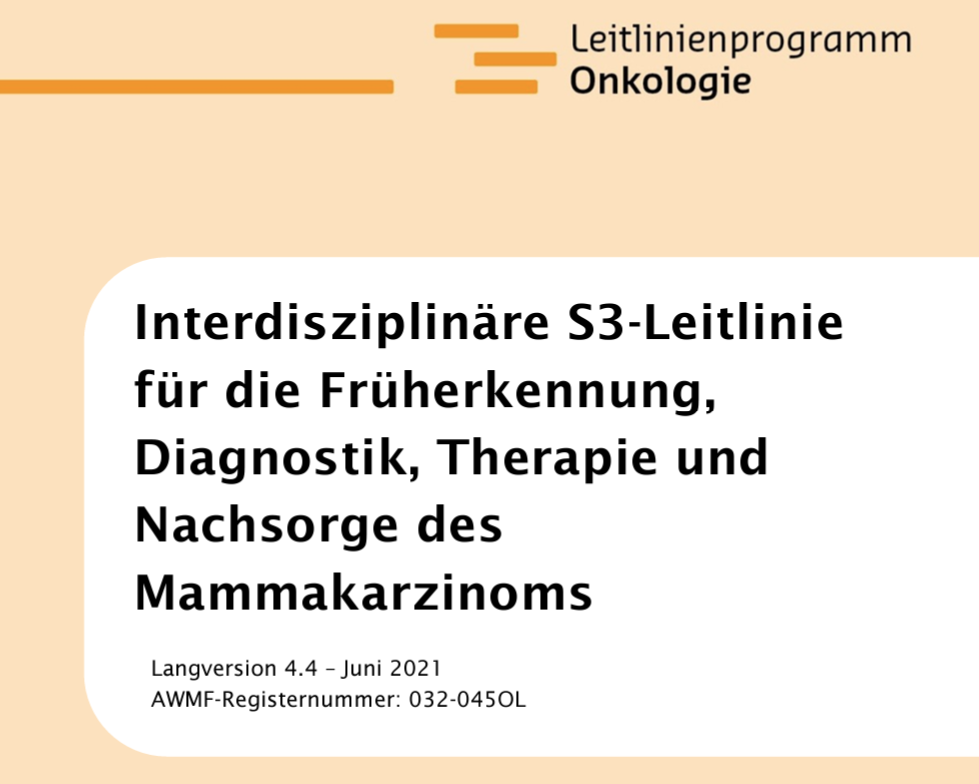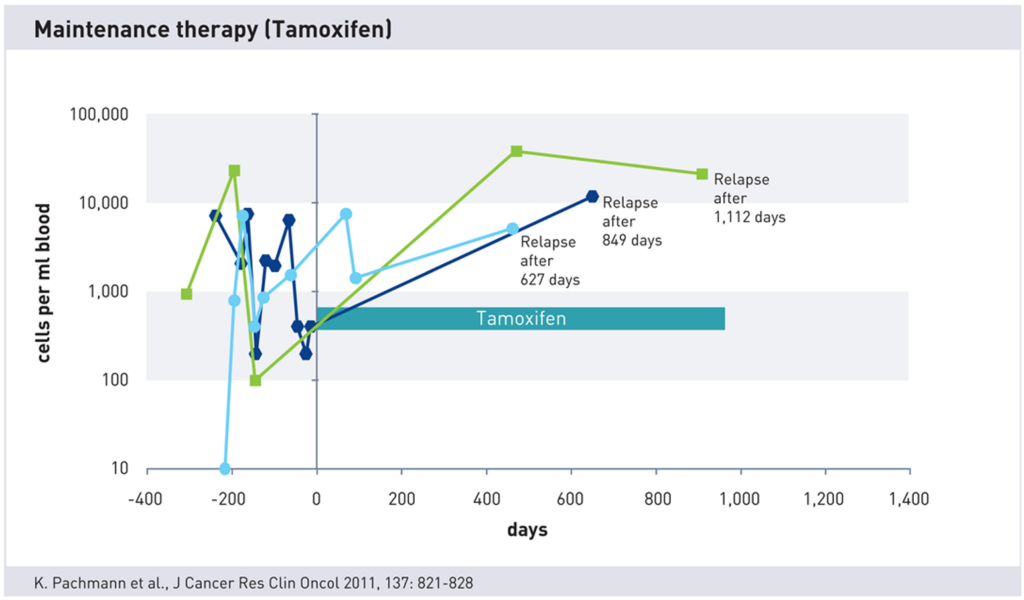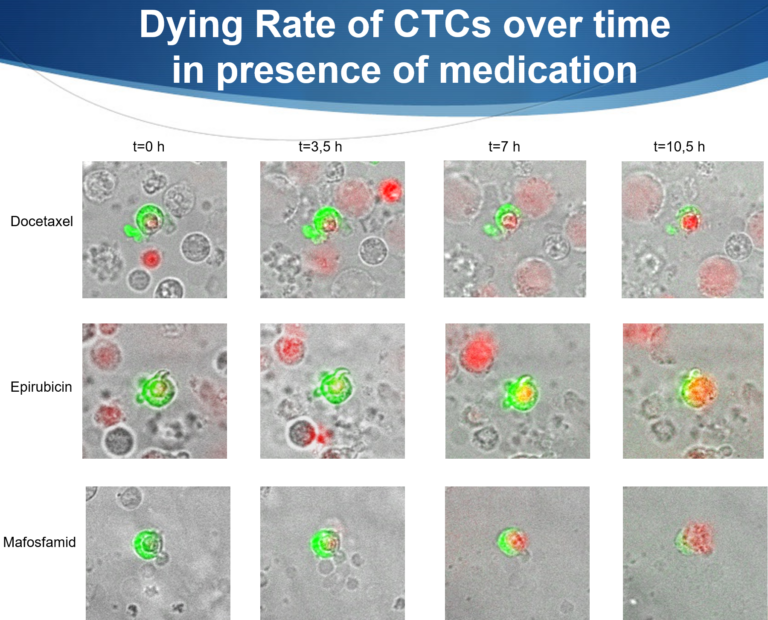Metronomic Therapy – could it be of help for me?
Metronomic therapy, never heard of it? What is it? Can it help me personally, what do I have to do? What is the state of research? What are my chances of success? How can I improve them? Many questions that I try to answer here.
What is Metronomic Therapy?
Metronomic therapy is a new type of chemotherapy in which cancer drugs are administered at a low dose, but continuously and regularly. The goal of this therapy is not only to destroy tumor cells, but also to inhibit blood vessel formation in the tumor and strengthen the immune system. It is seen as a more comprehensive approach to cancer therapy. Metronomic therapy has some advantages over conventional chemotherapy, such as:
- It is less toxic and causes fewer side effects such as nausea, hair loss or bone marrow damage.
- It is more cost-effective because it can be taken orally and does not require hospital stays.
- It can be combined with other therapies such as antibodies, hormones or immunotherapies to increase effectiveness.
- It can be used for various types of cancer, even those that are resistant to other treatments.
What is the State of Research on Metronomic Therapy?
Metronomic therapy was developed about 20 years ago, but has not yet been sufficiently researched because patentability is difficult to implement. Therefore, there are still many open questions, such as:
- Which drugs are best suited and at what dosage?
- How long should the therapy be carried out and when should it be discontinued?
- How can the therapy be individually adapted to the patient?
- How can the therapy be monitored and evaluated?
Clinical studies
To answer these questions, further clinical studies are required. There are already some studies that have investigated metronomic therapy for various types of cancer, such as:
- A study from 2001 showed that a metronomic combination of capecitabine (Xeloda®) and trastuzumab (Herceptin®) in metastatic breast cancer resulted in a response rate of 50%.
- A study from 2005 compared a metronomic cyclophosphamide-methotrexate therapy with a conventional chemotherapy in metastatic breast cancer. It was found that the metronomic therapy was more cost-effective and better tolerated.
- A study from 2014 made a systematic review of metronomic therapy in breast cancer. The conclusion – metronomic therapy is a promising option for patients with advanced or recurrent breast cancer. https://en.wikibrief.org/wiki/Metronomic_therapy.
Thus, metronomic therapy could play a role in the treatment of breast cancer, particularly in patients with hormone-dependent or HER2-positive breast cancer. However, further studies are necessary to find the optimal strategy for this patient group.
Guideline-Compliant Treatment – Friend or Foe?
Many hospitals advertise guideline-compliant treatment for cancer. What does that mean? Through experience, but especially through clinical studies, certain treatment methods are included in so-called guidelines when there is “sufficient” good evidence. This can be thought of as instructions for treating a particular type of cancer. In this case, it means that the patient is often (but not always) treated according to a standard protocol and not according to individual patient values.

There are now substances (cannabidiol (CBD), curcumin, cumin, vitamin C, …) that (under certain conditions!) work very well for many patients. However, these will never be included in the guidelines because no one will spend money on studies whose results cannot be protected by patent law. It is a huge financial risk.
In our laboratory measurements, we repeatedly see substances that can help one patient particularly well for some time, while other recommended guideline medications show hardly any cancer cell-killing effect.
Please do not misunderstand, the guidelines have helped many people to live longer, often even to be cured, but many more patients could benefit from a more flexible handling of the guidelines.
In many cases, flexibility is required for such therapy, which is unfortunately too often dismissed in some clinics with: “But that is not guideline-compliant.”
In the right, flexible hands, guidelines are a friend; in other hands they can also become an enemy.
Always remember, you have the final say in finding your treatment!
What can I do, how can Metronomic Therapy help Me?
As you have read in the article, the state of research for metronomic therapy is relatively thin. However all studies have in common the significantly better quality of life and costs compared to conventional high-dose chemotherapy, while in many cases the end result is the same.
A tip for possibly improving Metronomic Therapy
Scan your circulating tumor cells (CTCs) and check before treatment whether the CTCs are sensitive to the chemotherapy drugs. Other drugs might be a better choice. Monitor the course of cell count – increasing cell count means new tumor activity, constant or decreasing cell count is a good sign, continue with therapy.

If the tumor cell count increases sharply during follow-up treatment of the disease, this is a rather bad sign. An adjustment of therapy should be considered.
In the metastatic situation, with already visible tumors, we strongly recommend checking the number of tumor stem cells and testing their sensitivity to planned drugs.

Tumor sphere formation – these are tumor stem cells that are responsible for metastasis formation in many cases.
Contact us for more information. If you are interested in controlling your disease you can order a corresponding blood collection kit here.
Conclusion for Metronomic Therapy
Metronomic therapy is a new type of chemotherapy that administers cancer drugs at a low dose, but continuously and regularly. It has some advantages over conventional chemotherapy, such as less toxicity, lower costs, and better compatibility with other therapies. It could be used for various types of cancer, even those that are resistant to other treatments. However, metronomic therapy is not yet sufficiently researched and there are still many open questions that require further clinical studies. Metronomic therapy could play a role in the treatment of breast cancer, particularly in patients with hormone-dependent or HER2-positive breast cancer.
In order to react in time and always be informed about the status of one’s illness, it is advised to regularly follow the CTC count.
I remain with best wishes for your recovery!

Dr. Martin Burow, Biochemist





